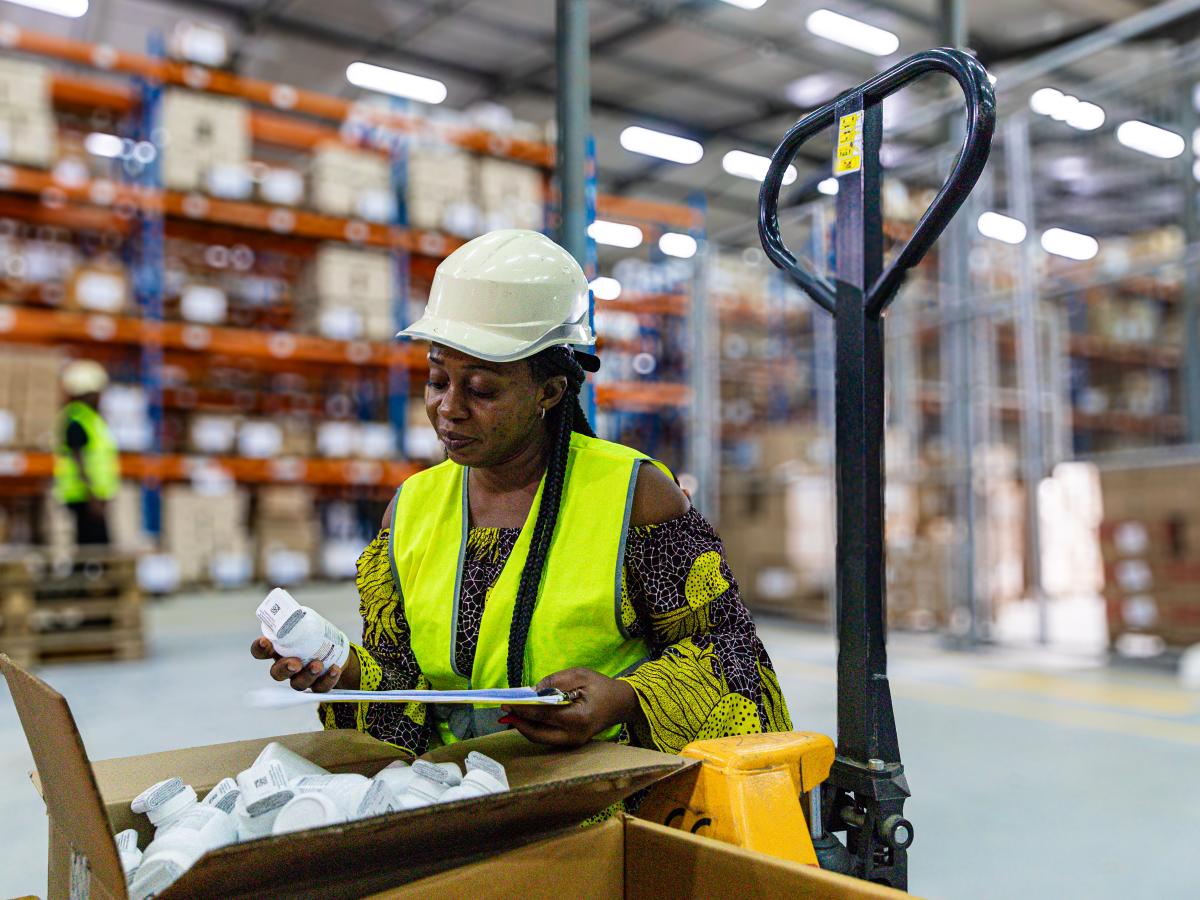Supply Chain for Health
USAID-supported supply chains have been instrumental in the U.S. Government's support of the global HIV response. Building on lessons learned over the last 20 years, USAID is transforming its global health supply chain program to maximize the availability, quality, and affordability of HIV medicines, diagnostics, and other health products.
USAID drives a client-centered supply chain to achieve HIV epidemic control and maximize the availability, quality, and affordability of HIV and other global health commodities. To meet this challenge, USAID operates one of the largest public health supply chains in the world with a mission to ensure the supply of quality essential medicines and other products to people impacted by HIV.
Some of the critical commodities required for HIV/AIDS programs around the world include:
HIV treatment and other essential medicines;
HIV rapid diagnostic kits;
Voluntary medical male circumcision kits;
Male and female condoms and personal lubricants; and,
Viral Load and Early Infant Diagnosis reagents, analyzers, and other laboratory diagnostics and equipment.
Our Approach and Results
Building on lessons learned over the last 20 years, USAID is transforming its global health supply chain program to maximize the availability, quality, and affordability of HIV medicines, diagnostics, and other health products. Importantly, USAID is modernizing and strengthening supply chains in PEPFAR-supported countries so that these countries can manufacture or procure their own HIV commodities. In 2023, 29 countries procured HIV medicines and commodities and received health supply chain systems strengthening with HIV funding through USAID-supported mechanisms.
Additionally, USAID’s global health supply chain program promotes sustainable supply in partner countries in collaboration with other U.S. agencies and stakeholders, while also training local staff in supply chain management to strengthen countries’ capacities to manage their own supply chains.

Caption: A supply chain worker takes inventory of life-saving HIV medication at a facility in Malawi. / Credit: Miléquêm Diarassouba for USAID
USAID has made significant and long-lasting contributions to the U.S. Government’s fight against the HIV/AIDS epidemic through the following:
Provided more than $5 billion in life-saving commodities to about 60 countries around the globe.
Provided more than 70 percent of the antiretrovirals funded through PEPFAR.
Supplied more than 360 million HIV/AIDS rapid test kits.
Delivered more than 16 million voluntary medical male circumcision kits.
Successfully led countries to transition to an HIV medication combination containing tenofovir disoproxil, lamivudine, and dolutegravir that was dispensed in 34 of 37 PEPFAR-supported countries. In 2023, USAID delivered more than 85.8 million bottles of TLD, an increase in deliveries from 2022.
Led PEPFAR’s efforts to provide affordable HIV treatment for millions. For example, in 2005, life-saving HIV treatment cost $1,000 per patient per year. Since procurement of tenofovir/lamivudine/dolutegravir began in 2019, USAID-led strategies have achieved a 43 percent price decrease against the median price of a 90-count bottle of TLD for an average cost of under $40 per person, per year.
Led a push for use of multi-month-dispensing of antiretrovirals for adults and children to ease the burden on people living with HIV. In 2023, multi-month dispensing of packages of tenofovir/lamivudine/dolutegravir first-line treatment accounted for 100 percent of all quantities delivered. As a result, people saved an estimated 4.2 million trips to the pharmacy in 2023 and more than 125 million trips over the life of the project.
According to modeling estimates, averted approximately 390,000 deaths and more than 1.36 million infections with HIV treatment medication and condom deliveries since the Global Health Supply Chain Program-Procurement and Supply Management project’s inception in 2016.
USAID is proud to support supply chain work through these awards:
The Next Generation of USAID Supply Chain
Building on lessons learned over the last 20 years, through NextGen, USAID is transforming its global health supply chain program to:
Maximize the availability, quality, and affordability of medicines and other health products and achieve better health outcomes for the clients served;
Strengthen local capacity;
Advance country-level sustainability and promote locally-managed procurement and supply chains in the countries where USAID works; and,
Increase value for the U.S. taxpayer, and reduce the chances of waste, fraud, and diversion even further.
Supply Chain Security Award
In September 2020, USAID launched the Supply Chain Security Award and initiated implementation in three countries. This contract assists with detecting commodity leakage, diversion, and theft in addition to counterfeit products within USAID-supported supply chains. This award creates a path for supply chain security reviews and provides technical assistance to drug regulatory authorities, supporting host governments to improve their own market surveillance efforts that combat theft, diversion, and falsification of public health commodities.
Resources
USAID List of Approved HIV/AIDS Rapid Test Kits – February 2017
Impact Blog: Delivering Life-Saving HIV/AIDS Drugs Around the World
Banner Photo: A health worker grabs a prescription for a patient at Mangochi District Hospital in Malawi. / Thoko Chikondi for USAID

